User Research
Libraries are impacted by the ways in which individuals engage with technology; how they seek, access, contribute, and use information; and how and why they demonstrate these behaviors and do what they do. We're collaborating with librarians to shape their services around a set of expectations that have been influenced by consumer technologies and modern research and learning environments. By providing the library community with behavioral evidence about individuals’ perceptions, habits, and requirements, we can ensure that the design of future library services is all about the user. Our efforts are amplified by strategic partnerships and focus in these two areas:
Presentations
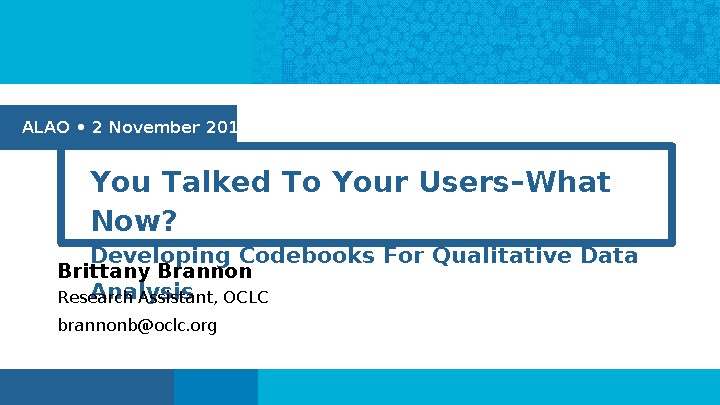
You Talked To Your Users-What Now?: Developing Codebooks For Qualitative Data Analysis
Lewis Center, OH (USA)
Brannon introduces coding, covers things to take into consideration when creating a codebook, and provides real world examples of codebooks in action.
Topics: User Research
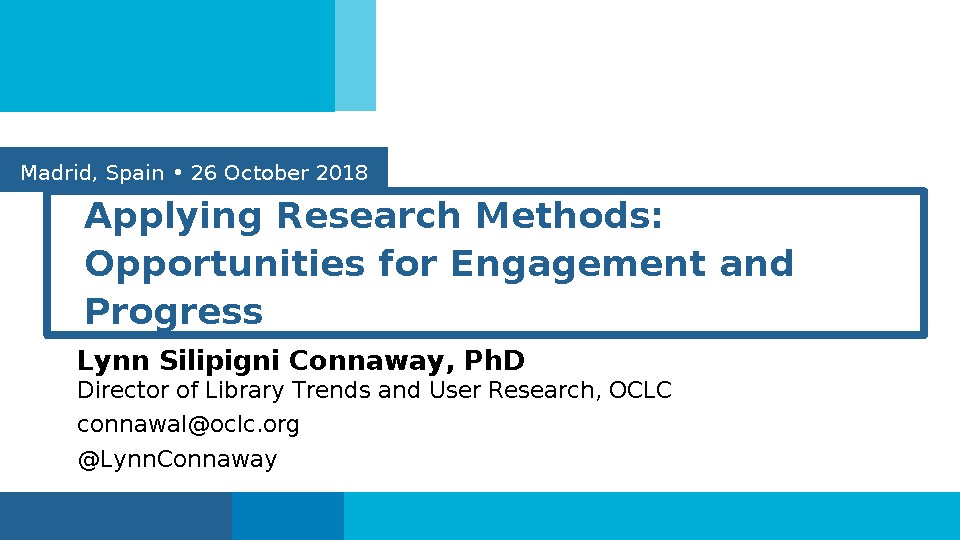
Applying Research Methods: Opportunities for Engagement and Progress
Madrid (Spain)
This presentation details research methods, and data collection and data analysis tools and methods used in library and information schools over the years, as well as challenges and opportunities.
Topics: Research Methods
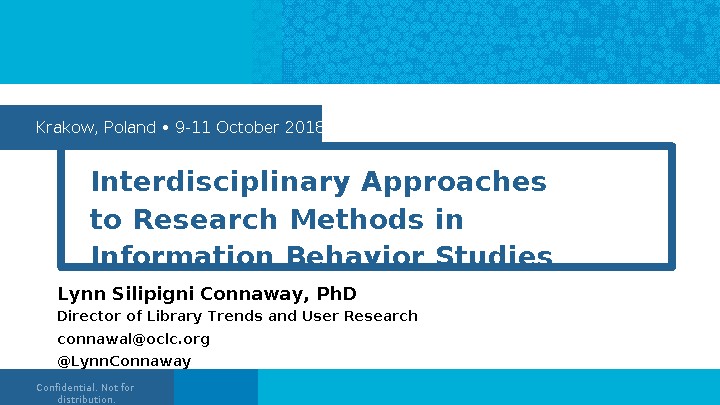
Interdisciplinary Approaches to Research Methods in Information Behavior Studies
Kraków (Poland)
This presentation details research methods, and data collection and data analysis tools and methods used in library and information schools over the years for information behavior studies, as well as challenges and opportunities.
Topics: User Research, Research Methods
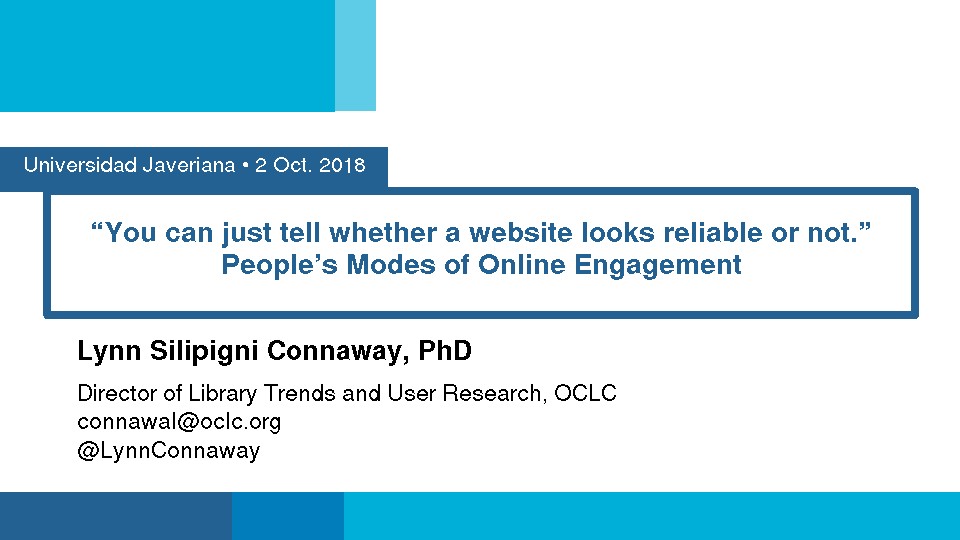
"You Can Just Tell Whether a Website Looks Reliable or Not." People's Modes of Online Engagement
Bogota (Colombia)
Learn about the Digital Visitors and Residents project, how research supporting the project was completed, results focused on digital literacy, and recommendations for libraries.
Topics: User Research, Information Literacy
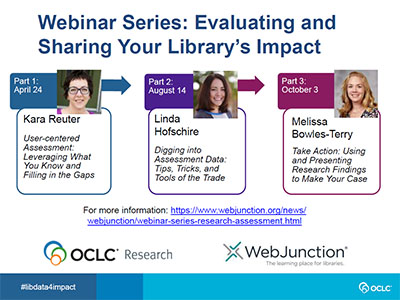
Digging into Assessment Data: Tips, Tricks, and Tools of the Trade (video)
This webinar is the second in a three-part series bringing together research and practice from across library sectors, covering the ins and outs of creating and implementing assessments that provide insightful, actionable data.
Topics: Assessment, WebJunction

User-Centered Assessment: Leveraging What You Know and Filling in the Gaps (video)
Whether you’re trying to decide how to allocate your library’s resources or make the best use of your space, formal assessment tools can guide your decision-making. This webinar covers why formal assessments are more effective than anecdotal data, and will help you learn how to plan effective evaluations.
Topics: User Research, Assessment, WebJunction
People's Modes of Online Engagement: The Many Faces of Digital Visitors and Residents
Sheffield (UK)
Learn more about OCLC's Digital Visitors and Residents work, identifying how individuals are engaging with technology, acquiring information, and why they make their choices.
Topics: Digital Visitors and Residents
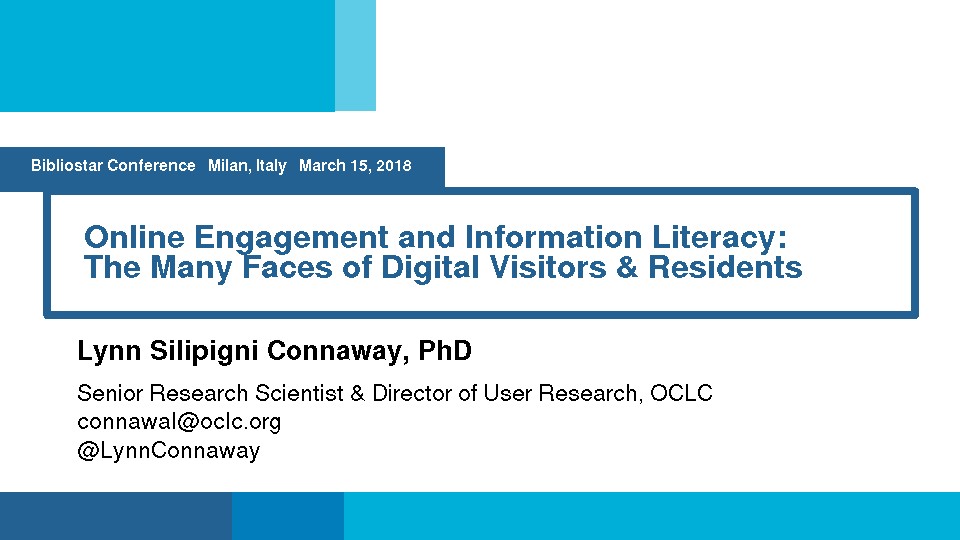
Online Engagement and Information Literacy: The Many Faces of Digital Visitors & Residents
Milan (Italy)
Learn more about OCLC's Digital Visitors and Residents work, identifying how individuals are engaging with technology, acquiring information, and why they make their choices.
Topics: Digital Visitors and Residents, User Research, Information Literacy
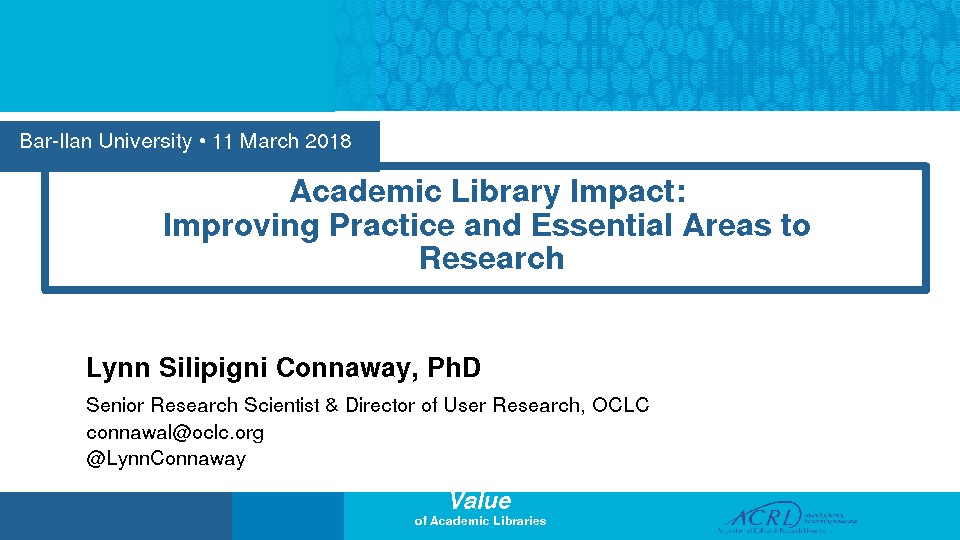
Academic Library Impact: Improving Practice and Essential Areas to Research
Ramat Gan (Israel)
Silipigni Connaway provides an update on the ACRL initiative on Academic Library Impact, including details on how the research was conducted and areas of focus for libraries.
Topics: Student Support
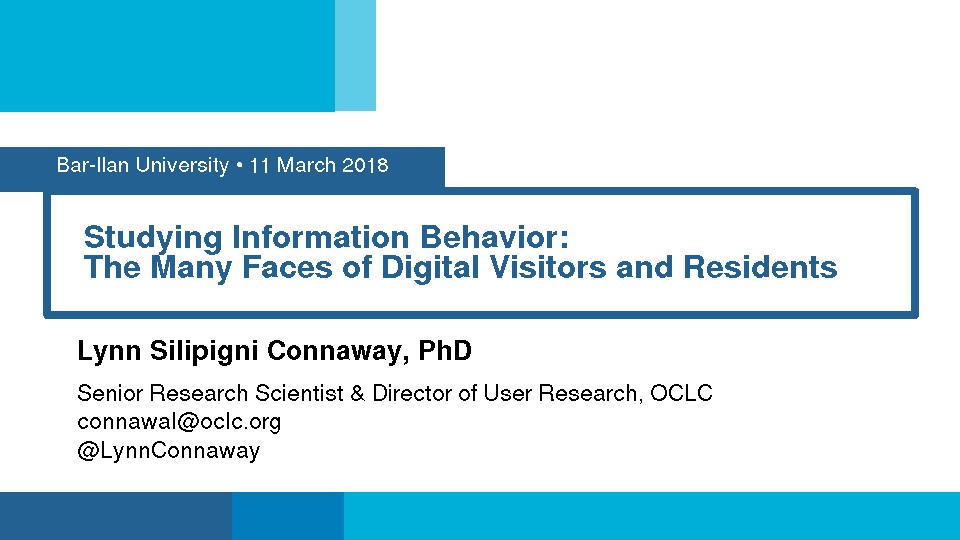
Studying Information Behavior: The Many Faces of Digital Visitors and Residents
Ramat Gan (Israel)
Learn about the Digital Visitors and Residents project, which reveals the information behavior of students and faculty as they access information in the library.
Topics: Digital Visitors and Residents, User Research